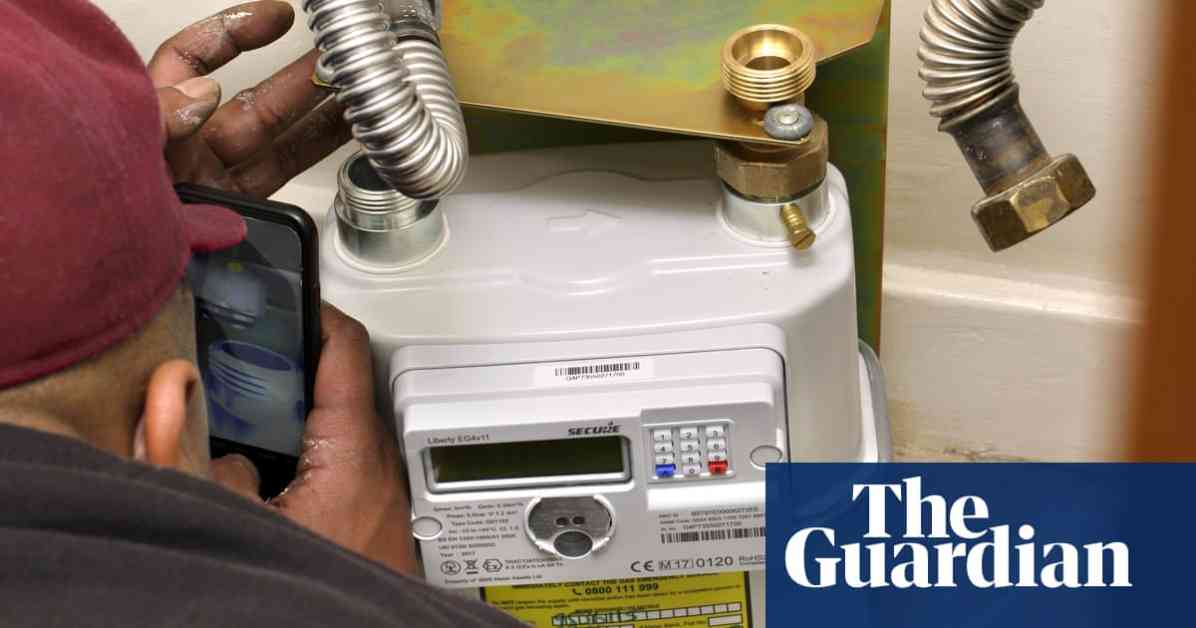Energy customers in the UK are feeling short-changed by the government’s push to install electronic smart meters in homes, according to consumer champion Martin Lewis. Lewis, the founder of MoneySavingExpert.com (MSE), has raised concerns that the focus on installing new meters is leaving households vulnerable to shock bills due to malfunctioning devices.
Lewis recently penned a letter to Ed Miliband, the secretary of state for energy security and net zero, highlighting the need to prioritize repairs for faulty smart meters alongside installations. He emphasized that the current targets set by the government are leading to a situation where suppliers are more focused on meeting installation quotas rather than ensuring that existing meters are in working order.
One high-profile case that brought attention to the issue was when artist Grayson Perry saw his monthly electricity bill skyrocket from £300 to £39,000 due to a faulty smart meter. Lewis believes that suppliers should be incentivized to address faulty meters promptly to prevent such extreme cases from occurring.
“I am writing to you to warn of the brand damage that risks making the government’s targets framework perverse,” Lewis stated in his letter. “A rethink is needed – specifically, I’d suggest shifting firms’ targets from smart meter installations to the overall number of ‘working’ smart meters, which would incentivize firms to prioritize both installations and repairs.”
Smart meters are designed to record energy consumption, display costs in real time, and submit regular readings to energy providers. The government aims to have these meters installed in 74.5% of homes by the end of 2025, with an estimated overall cost of £13.5 billion funded by suppliers and recouped through consumer bills.
However, the rollout of smart meters has faced numerous challenges, with nearly 4 million devices malfunctioning in the UK. This has left many households at risk of inaccurately high bills, as highlighted in figures released by the Department for Energy Security and Net Zero (DESNZ).
According to Lewis, the government’s current estimate of malfunctioning smart meters only accounts for about 10% of the actual problem. He noted that the figure provided by DESNZ excludes issues such as in-home displays that fail to communicate or connect, incorrect data on tariffs or usage, and prepay top-ups that do not register correctly.
“Our latest MSE research shows that 19% of consumers report issues with their smart meters,” Lewis explained. “The lack of focus on repairs, coupled with resources being directed towards installations, has left consumers frustrated and at risk of misbilling and further complications.”
Until recently, customers were required to cover the costs of fixing any issues that arose after their one-year warranty expired. In February, Ofgem introduced a new scheme that obligated participating suppliers to repair faulty meters at no additional cost, although not all firms have signed up for the initiative.
A report by the House of Commons public accounts committee revealed that suppliers were prioritizing new installations over repairs to meet rollout targets. Current regulations only mandate firms to take “all reasonable steps” to address faulty meters, while there are strict targets for new installations with penalties for non-compliance.
Lewis criticized the poor planning that has hindered progress towards achieving net zero emissions. He noted that smart meters, when implemented effectively, have the potential to enhance energy security and facilitate innovative pricing structures that encourage consumers to shift their usage to times when renewable energy sources are abundant.
Despite the setbacks faced by the smart meter rollout, Lewis remains hopeful that the technology can ultimately benefit consumers by reducing costs and promoting sustainable energy practices. He emphasized the importance of addressing the shortcomings in the current approach to ensure that smart meters fulfill their potential in the transition to a greener future.
The Department for Energy Security and Net Zero was contacted for comment on the issues raised by Martin Lewis and the challenges surrounding the smart meter rollout.












